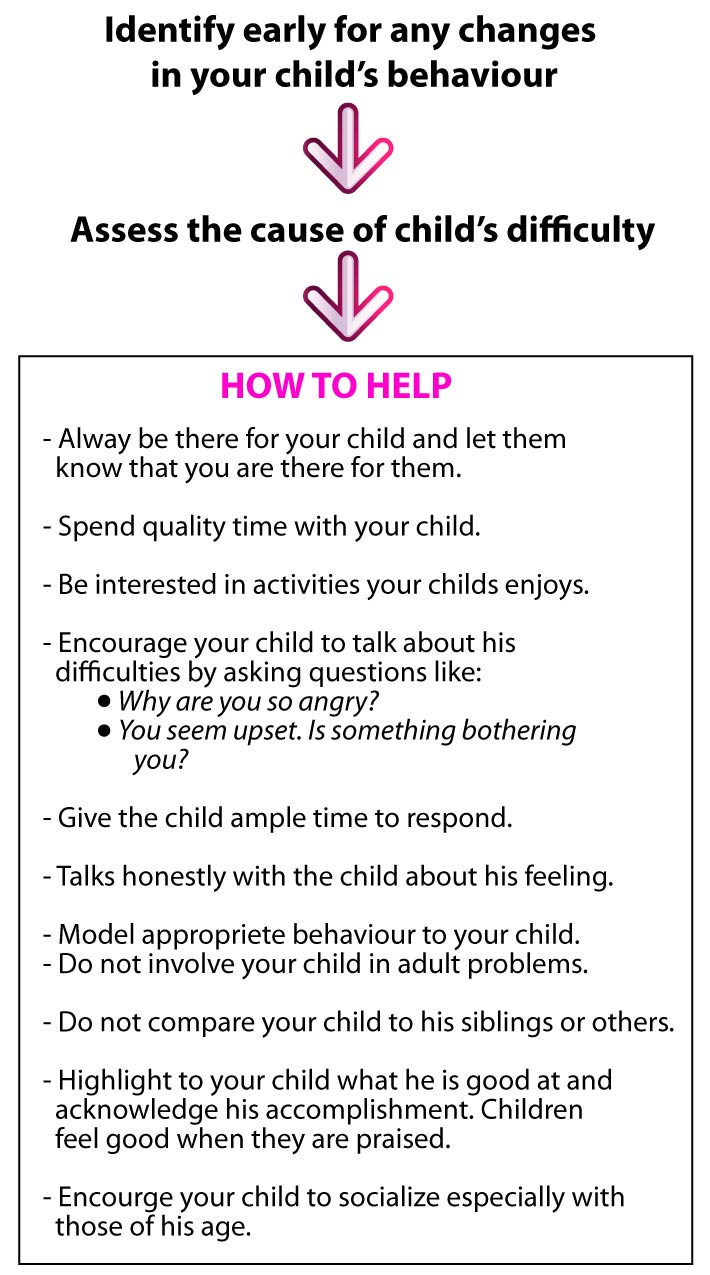Introduction
Children between the age of two to five years develop rapidly especially in language, social and cognitive skills. They will gradually acquire the ability to understand feelings and to be able to play symbolically and imaginatively. They started to venture further from home, forming relationships with peers and adults in childcare and early education services. Preschool period can then be a difficult and challenging time for children and caregiver.
Children who are developing healthily will enjoy playing and doing leisure activities. They feel comfortable when they are with their family and friends. They enjoy being together with other children of their age or even with adults.
They will experience the usual feelings of sadness, angry or upsets when things do not go their way. They misbehave, throw temper tantrums but with time these will usually pass by. However intervention is indicated if these symptoms persist and become worse; a sign of disturbed mental health.
Signs of disturbed mental health
As parent you must be aware of any obvious changes in your child’s behaviour.
The signs are:
- Constant crying and clingingness
- Not socializing with others especially children their age.
- Going backwards in their development; soiling and wetting pants after being toilet trained; not talking after learning to talk.
- Severe worry or anxiety as shown in refusal to go to daycare or preschool.
- Persistent night mares.
- Persistent disobedience or aggression.
- Harming themselves, e.g. biting, hitting or banging their heads.
- Frequent unexplained temper tantrum
- Stealing e.g. candy, toys etc
- Frequent physical complaints; tummy ache, headache.
- Weight changes: not gaining or losing weight
- Being overfriendly with everyone even with strangers
Children may present with internalizing (e.g. withdrawn) or externalizing (aggression) behaviour.
Why a child behave this way
- They have not developed the ability to express themselves
- Has limited vocabulary
- Poor emotional regulation
- Have not learn how to manage daily stresses and channeling them into appropriate behaviour
Factors that contribute to behaviour problems
Every child has different coping skills. Some can cope better than others. Factors which can contribute to these differences could be attributed to:
- Developmental delays
- Self regulation issues
- Emotional, physical, sexual abuse and neglect.
- Psychiatric disorders
- Social skills deficits
- Language delays
- Temperament
- Parental psychological problems
- Factors within the child’s environment
- Aggression may also reflects what child’s see either through media or within daily life
What parents can do?

Aim of early intervention
- Prepare the child socially and emotionally ready for school.
- Promote the success of young children in preschool and school environment.
- Child able to play successfully and become more productive in the preschool setting.
- Easier time developing relationship with peers and do better at school
- Positive outcome in academic achievement, delinquency and crime.
Your child’s mental health is as important as his physical health.
Get help from professionals when you noticed that your child is struggling with his mental health by having difficulties with coping, socializing and lost interest in activities he used to enjoy.
| Last Reviewed | : | 10 May 2024 |
| Writer | : | Dr. Norhayati binti Nordin |
| Reviewer | : | Dr. Muhammad Fadzly bin Marzuki |







